Are mainland China tourists discriminated against in Hong Kong?
The reopening of borders between mainland China and Hong Kong has led to heightened tensions between people on the ground, as each side has their own complaints against the other. The authorities will have to handle the situation carefully to prevent it from boiling over.
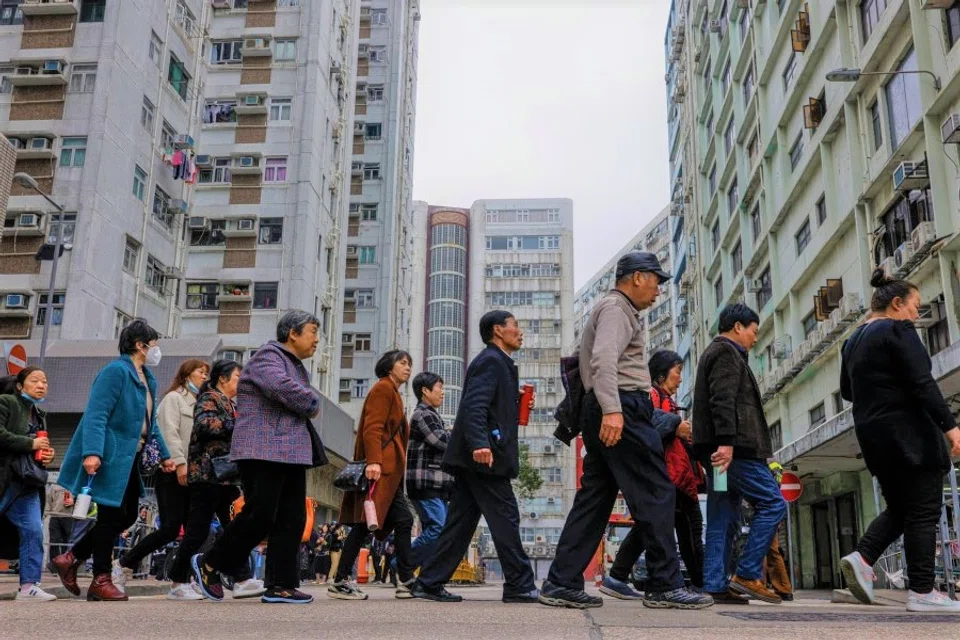
The number of mainland Chinese tourists to Hong Kong has spiked since the borders between the two places reopened in early February, but this has triggered an unexpected and intense debate over discrimination against those who speak Mandarin or Putonghua in Hong Kong.
In February, a mainland Chinese internet celebrity uploaded a video on Douyin saying that a follower complained that speaking Putonghua in Hong Kong attracted disapproving looks. And so the internet celebrity sought to experience it for herself by strictly speaking Putonghua in a hotel, a restaurant and a footwear store in Hong Kong.
She highlighted the five most unfriendly interactions she had in Hong Kong, including being required to pay an unnecessary deposit at a hotel, receiving poor service at a money changer and a footwear store, and not being allowed to charge her mobile phone at a restaurant, showing the unfair treatment by the service staff in Hong Kong towards her just because she spoke Putonghua.
She concluded that speaking Putonghua in Hong Kong would lead to discrimination and disapproving looks, and also different treatment as compared with locals.
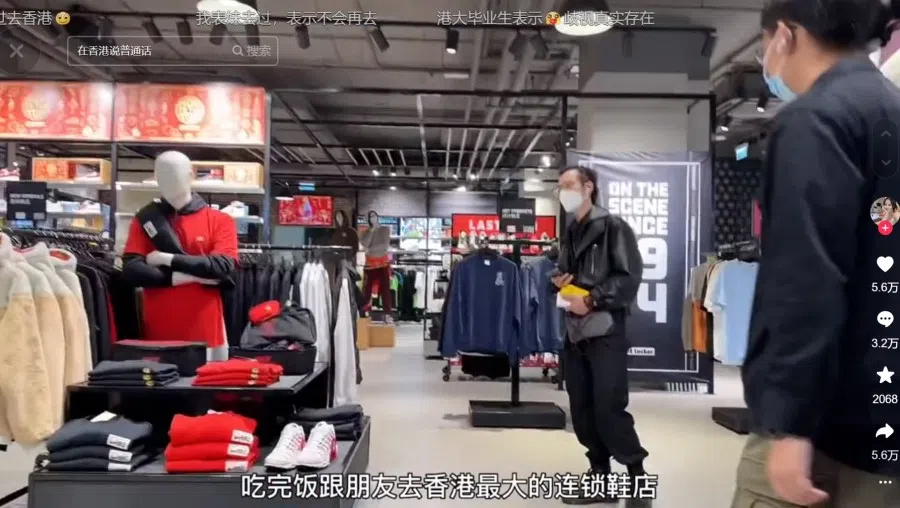
She concluded that speaking Putonghua in Hong Kong would lead to discrimination and disapproving looks, and also different treatment as compared with locals.
Blow to Hong Kong's tourism sector
The video sparked a major debate in mainland China and Hong Kong. Some netizens agreed that some Hong Kongers do have a poor attitude towards visitors who speak Putonghua, while others said that they did not face similar situations when in Hong Kong and criticised the internet celebrity for intentionally exaggerating the conflict. Yet, others acknowledged that it is normal to have both friendly and unfriendly people everywhere.
But one thing led to another. A mainland China internet celebrity with 1.09 million followers that goes by the moniker "Ah Qiu from Chaoshan (Riding through China)" (潮汕阿秋(骑行中国)) has been cycling across China since 2019. In early March, he posted a video of him reaching Hong Kong on his bicycle. As he introduced Mongkok and the locations where Stephen Chow shot his movies, he excitedly said, "Look at how vibrant this place is!"
Unexpectedly, Qiu's bicycle was stolen on his fifth day in Hong Kong. While the Hong Kong police arrested a local man in connection with the case the next day, the related video had gone viral in mainland China and was a hot topic online in both places. It dealt a major blow to Hong Kong's tourism sector.
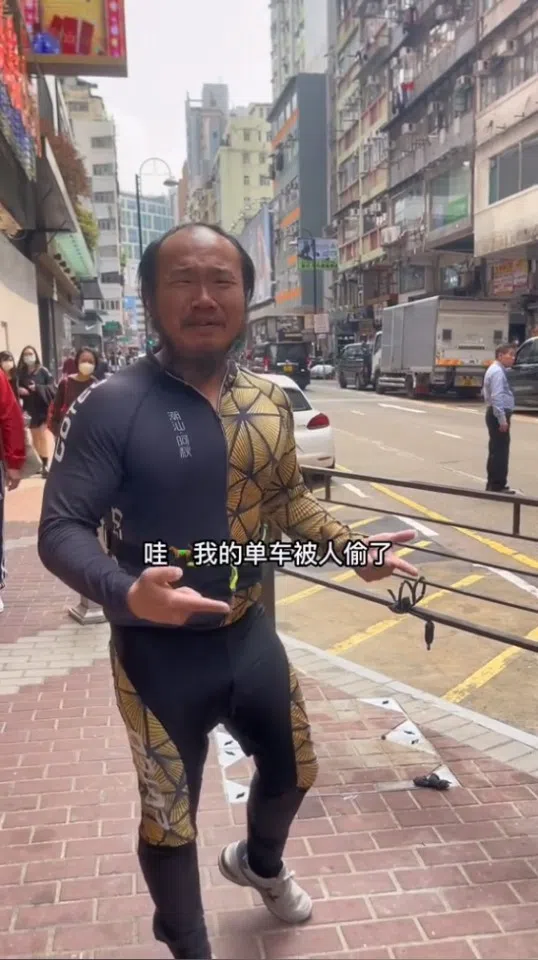
Borders between Hong Kong and mainland China were closed due to Covid-19 in the first half of 2020, and finally reopened three years later on 6 February this year to an explosion of mainland China visitors to Hong Kong. Figures from the Hong Kong Tourism Board show that there were 1.46 million visitors to Hong Kong in February, an increase of about 200% from the previous month. It is also the first time monthly visitors to Hong Kong exceeded a million since the pandemic began in February 2020.
Among the 1.46 million visitors to Hong Kong, the increase in visitors from mainland China was the most significant with nearly 1.1 million visitors, nearly four times as many as the previous month. Visitors from other regions increased from 220,000 to over 350,000.
However, as Hong Kong's various sectors - especially tourism, retail and food and beverage (F&B) - are anticipating and hoping to seize business opportunities for "revenge spending" with borders reopening, over the past few months mainland Chinese visitors have complained of being discriminated against in Hong Kong.
Mainland Chinese visitors duped at pharmacies
The most common complaint is that some pharmacies in Hong Kong would trick or even threaten mainland Chinese visitors into buying exorbitantly priced medicinal herbs.
Figures from Hong Kong's Consumer Council show that in the first two months of this year, it received 24 complaints regarding traditional Chinese medicine involving about HK$360,000 (US$45,860). Among them, the most common complaint was about "sales tactics", with 19 complaints lodged against it.
Hong Kongers are also starting to be unhappy about the problems that come with the increasing number of mainland Chinese visitors.
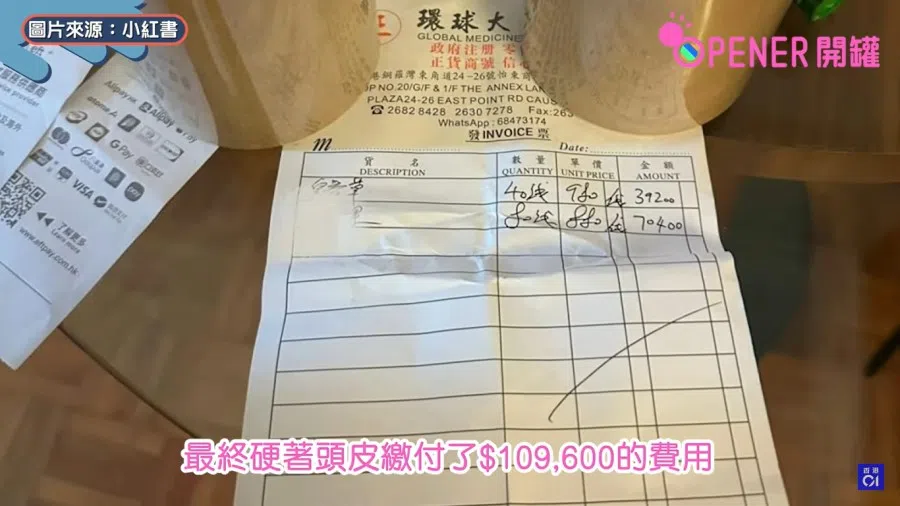
Previously, a female visitor from Ningbo alleged that she and her son were duped into buying medicinal herbs at exorbitant prices by a pharmacy in Causeway Bay. The bill totalled nearly HK$110,000, and the pharmacy had already ground up the herbs into powder to finalise the sale.
The visitor sought advice from netizens, and claimed to have no recourse as her complaint lodged with Hong Kong customs was rejected. While she later clarified that she had called the wrong number and that the Hong Kong customs had followed up to resolve the issue, the video went viral and deepened the negative impressions mainland Chinese residents had of Hong Kong.
Hong Kongers' complaints about tourists
Notably, while mainland Chinese visitors have gripes about Hong Kong following the reopening of borders, Hong Kongers are also starting to be unhappy about the problems that come with the increasing number of mainland Chinese visitors.
Take for instance the issue of parallel traders travelling to Hong Kong to import goods from Hong Kong to mainland China, causing shortages of household goods in Hong Kong pre-Covid. The pharmacies and dispensaries at Sheung Shui's Shek Wu Hui, an area known for parallel trading, reopened some time ago, and there has been an increasing number of people dragging luggage around, sparking suspicions about the revival of parallel trading.
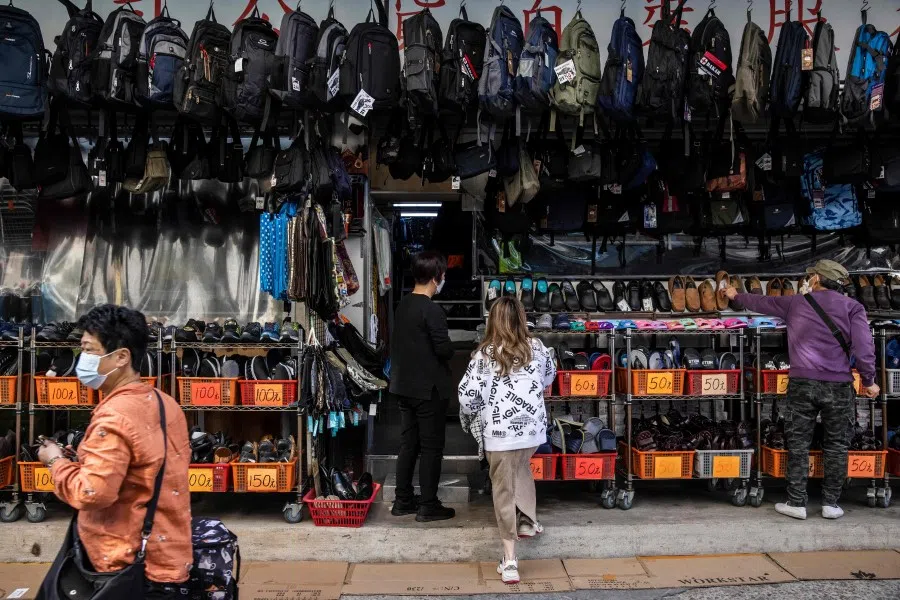
Social media platforms focused on parallel trading in Hong Kong's North District have featured photos showing the return of crowds to Sheung Shui train station, a traditional gathering place for parallel traders. They are seen loitering around, dragging luggage bags, squatting or sitting in the station and obstructing movement, or getting past customs with their luggage.
Many Sheung Shui residents complain on social media that these traders seriously affect local daily life, and the train station is no longer suited for residents' use.
At the same time, Hong Kong netizens have also posted photos of what look like mainland Chinese panhandling in Hong Kong. These photos show some of these people busking on the street and others quietly "lying flat" to gain the sympathy and alms of passing Hong Kongers.
Some Hong Kong netizens worry that the reopening of borders has worsened Hong Kong's social problems.
When queried, Hong Kong police confirmed that over the three years of the pandemic, there was a drop in the number of people arrested for panhandling, and even hit nearly zero for the whole year at one point, but the problem came back after the borders reopened. As of 26 February, the police have arrested nine people this year for illegal panhandling - seven of them are mainland Chinese holding two-way travel permits.
Many are worried that such conflicts will soon rekindle and cause social problems if not handled properly.
Conflicts might become social issues if not handled properly
After the SARS outbreak ended in Hong Kong in 2003, Beijing implemented the individual visit scheme, allowing mainland residents to visit Hong Kong on their own without a tour group or business visa, and Hong Kong's economy rapidly recovered. However, the increased number of visitors had disrupted Hong Kongers' daily life.
From 2012, Hong Kong's civil organisations initiated several movements against parallel traders and "locusts" (a colloquial term for mainland Chinese), protesting against mainland Chinese monopolising Hong Kongers' living space and fighting for resources.
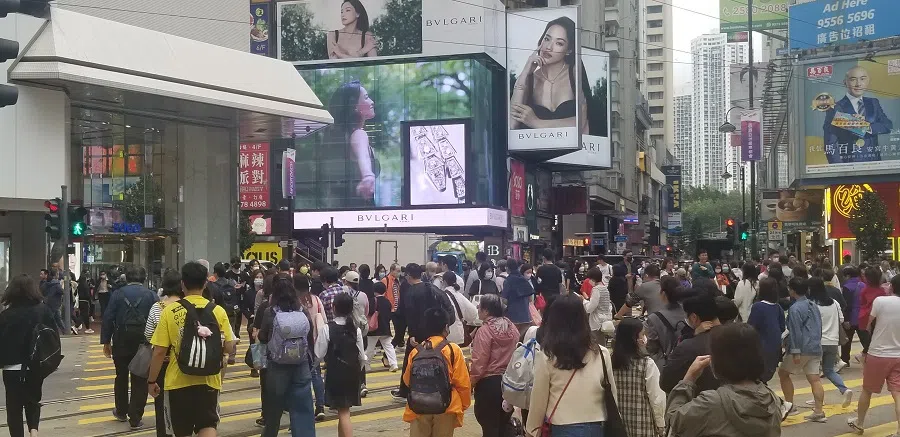
Over the past month or so, mainland tourists have been flocking to Hong Kong after borders have fully reopened, and discussions about the conflicts between Hong Kong and the mainland have resurfaced on social media. Many are worried that such conflicts will soon rekindle and cause social problems if not handled properly.
Isolated incidents
Hong Kong Tourism Association executive director Timothy Chui Ting-pong told Zaobao that recent news about the discrimination against mainland tourists in the city are "isolated incidents". He added that similar news are reported overseas as well, and that "there is no need to exaggerate the situation and say that it is an escalation of tensions between Hong Kong and the mainland".
As for the increase in mainland Chinese parallel traders and panhandlers in Hong Kong, Chui said these parallel traders are mostly locals and have nothing to do with the tourism industry, adding that relevant problems should be handled by the police instead.
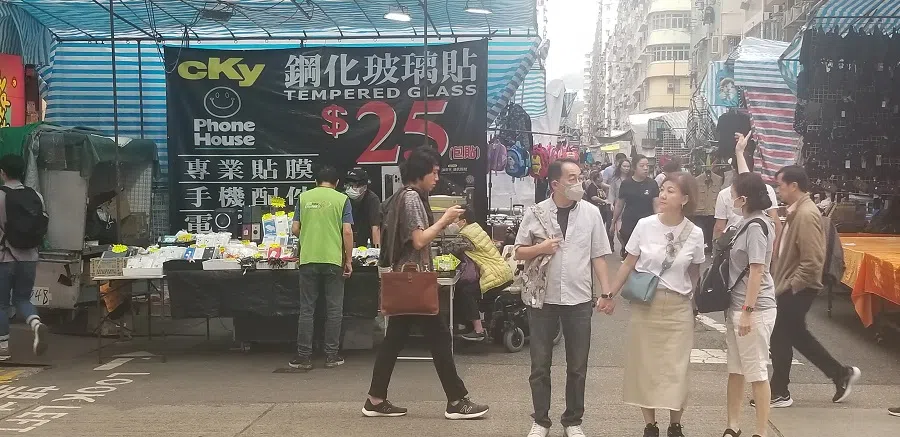
He stressed that the current number of visitors to Hong Kong is still far from pre-pandemic levels and that Hong Kong welcomes tourists from the mainland. He said that authorities still need to ramp up publicity to attract more mainland visitors to Hong Kong.
Hasty generalisations and biased reports
Hong Kong Legislative Council member Peter Shiu Ka-fai, who represents the wholesale and retail sector, believes that while there are indeed a few black sheep in Hong Kong's tourism, retail and F&B sectors, it is still a "hospitable city" in general. However, the biased reports of some Hong Kong and mainland Chinese media often give tourists the wrong impression.
He also hopes that Hong Kong and mainland Chinese media and opinion leaders will report in an objective and balanced manner instead of exaggerating isolated cases to gain traffic.
Shiu cited the example of a mainland tourist who had alleged on Xiaohongshu that she was discriminated against for speaking Putonghua in Hong Kong. Apparently, she was asked to pay HK$100 for a box of medicine that is priced at HK$85 at a pharmacy in Wan Chai. However, when Shiu followed up on the incident, the Wan Chai pharmacy denied the allegations.
Shiu added that public opinion had continued to focus on the unverified one-sided story on Xiaohongshu and paid little attention to the pharmacy's denial of the matter. "Falsehoods are easily spread and the truth could be distorted," he said.
Shiu cited the example of a netizen who had uploaded a challenge video, wanting to find out if people would look down on her if she only spoke Putonghua in Hong Kong. "But the netizen concentrated her few bad experiences into one video, which gives her viewers a wrong impression of Hong Kong, causing adverse impacts.
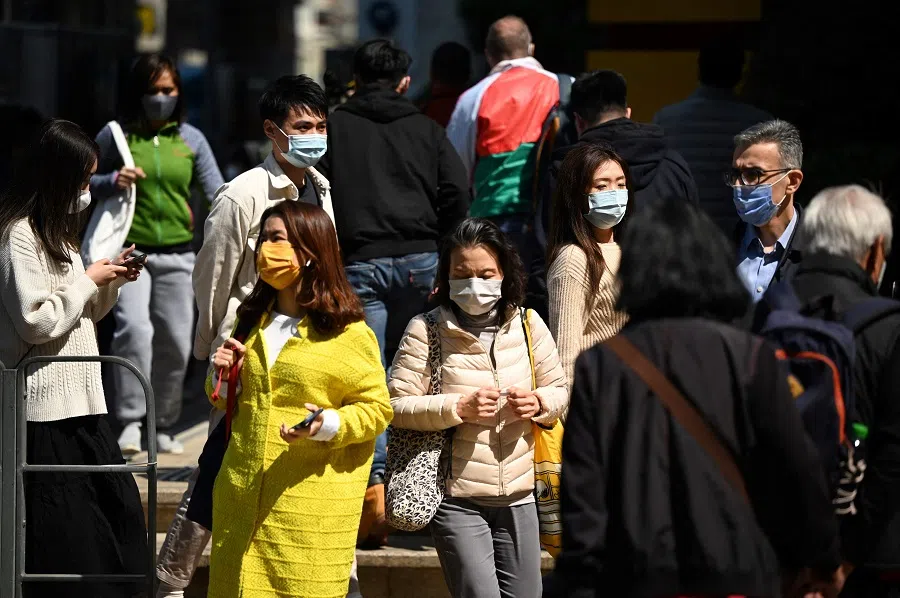
Shiu thinks that the Hong Kong government should strive to rebuild Hong Kong's hospitable image by promoting Hong Kong as a shopping haven for genuine goods while cracking down on illegal business practices. Authorities should also proactively clarify and dispel misunderstandings as soon as possible.
He also hopes that Hong Kong and mainland Chinese media and opinion leaders will report in an objective and balanced manner instead of exaggerating isolated cases to gain traffic.
Hong Kongers who oppose the Hong Kong government have mostly emigrated while the national security law has taken effect, hence no one dares to start protests that would provoke conflicts between Hong Kong and the mainland anymore. - Chan Wai-keung, lecturer, The Hong Kong Polytechnic University's Hong Kong Community College
Prohibiting intraracial discrimination
Although there had been conflicts between mainland China and Hong Kong in the past, the situation is set to ease with the changing economic situation, the implementation of the Hong Kong national security law, and potential legislative amendments outlawing intraracial discrimination.
Chan Wai-keung, a lecturer at The Hong Kong Polytechnic University's Hong Kong Community College, believes that it is unlikely that another radical anti-mainland movement in Hong Kong like the one during the pre-pandemic days will occur, because Hong Kong's retail sector has been badly hit by the pandemic over the past three years and desperately needs the support of the mainlanders. Hence, Hong Kongers generally welcome mainland tourists.
He also told Zaobao that over the past few years, the political atmosphere in Hong Kong had been tense and incidents of conflicts between Hong Kongers and mainlanders had been sensationalised online by malevolent individuals. However, in recent years, Hong Kongers who oppose the Hong Kong government have mostly emigrated while the national security law has taken effect, hence no one dares to start protests that would provoke conflicts between Hong Kong and the mainland anymore.
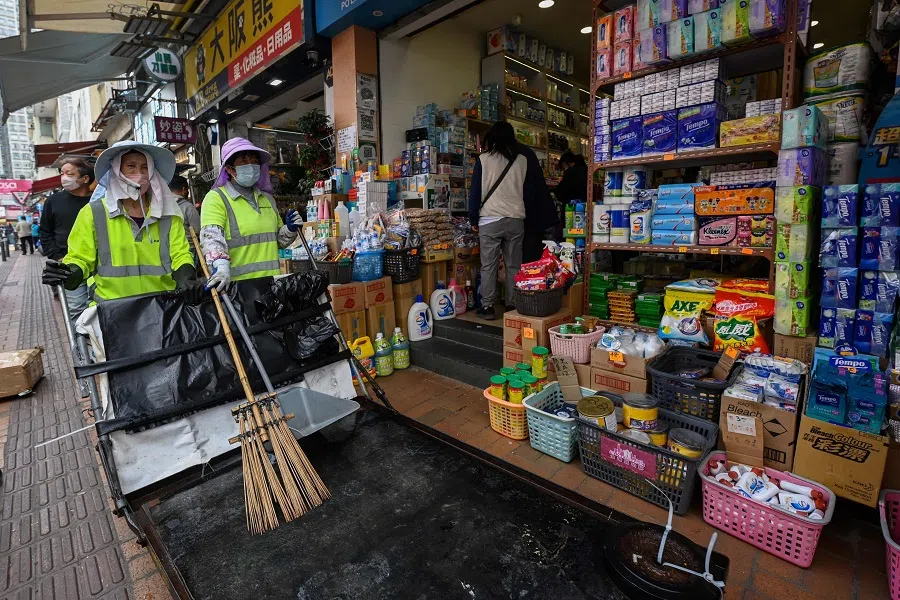
Notably, Hong Kong's Equal Opportunities Commission (EOC) revealed in 2021 that it plans to amend the Race Discrimination Ordinance to ban intraracial discrimination; that is, to outlaw mutual discrimination between Hong Kongers and mainlanders. After the recent reopening of the border between Hong Kong and mainland China, tensions between both sides worsened again. EOC chair Ricky Chu announced on 20 March at a Legislative Council meeting that the proposed legislative amendments have entered the final stage.
He said that although legislation is the last resort in dealing with discrimination, it is necessary to solve the problems of mainlanders being subjected to insults and hostility in employment and even in the use of public facilities.
However, to avoid drawing the ire of Hong Kongers, Chu said that it is equally important for the Hong Kong police to indiscriminately enforce the law on mainlanders illegally engaging in panhandling or prostitution in Hong Kong.
... staff in charge of mainland tour groups to Hong Kong can first educate tourists about the importance of civilised behaviour before departure to help them understand the cultural differences between the mainland and Hong Kong. - Terry Yip Tak Ping, senior lecturer, The Education University of Hong Kong
Getting to the root of the problem
The Education University of Hong Kong senior lecturer Terry Yip Tak Ping told Zaobao that one must get to the root of the problem to resolve the conflict between Hong Kong and the mainland. The issue of mainlanders being treated rudely in Hong Kong can be approached in two ways.
One, strengthening the education for tourists. For example, staff in charge of mainland tour groups to Hong Kong can first educate tourists about the importance of civilised behaviour before departure to help them understand the cultural differences between the mainland and Hong Kong. At the same time, Hong Kong tour guides can also provide reminders to mainland tourists throughout the trip.
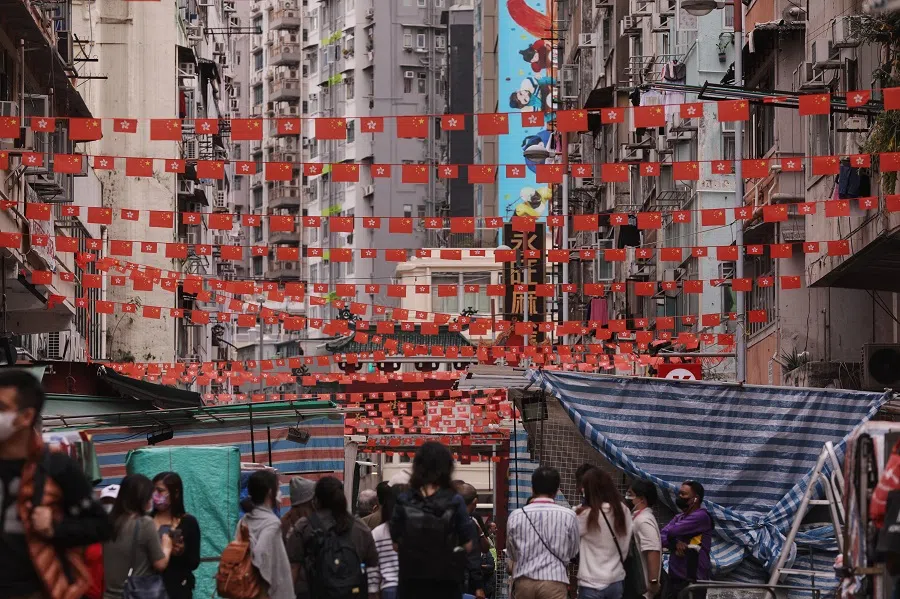
Two, Hong Kongers have to understand that tourism is an important economic pillar of the city, and that they ought to be hospitable to mainland and foreign tourists alike. In fact, this is also a mark of a civilised city.
Yip thinks that conflicts between the mainland and Hong Kong are inevitable in the short term. After all, Hong Kong and the mainland had experienced over a century of separation, which naturally resulted in different lifestyles and thinking. Furthermore, with the three-year suspension of exchanges due to the pandemic, problems are bound to arise as soon as borders reopen.
But Yip pointed out that, from a different perspective, the conflict is also a good thing because it marks the first stage of integration between Hong Kongers and mainlanders. Different cultures inevitably clash in the early stages of communication. In the process, both sides will absorb the good and abandon the bad to gradually integrate into a harmonious state.
He said, "The public can be more understanding and tolerant while the media should also maintain professional etiquette and tell the story well as much as possible."
This article was first published in Lianhe Zaobao as "陆港全面通关民间矛盾升温".
Related: Is Hong Kong still a shopping paradise for mainland Chinese shoppers after the pandemic? | Will an investment summit revive Hong Kong's status as a financial hub? | Hong Kong's left turn could hit its financial centre status | One country, two systems: Can Hong Kong hold on to its characteristics?





